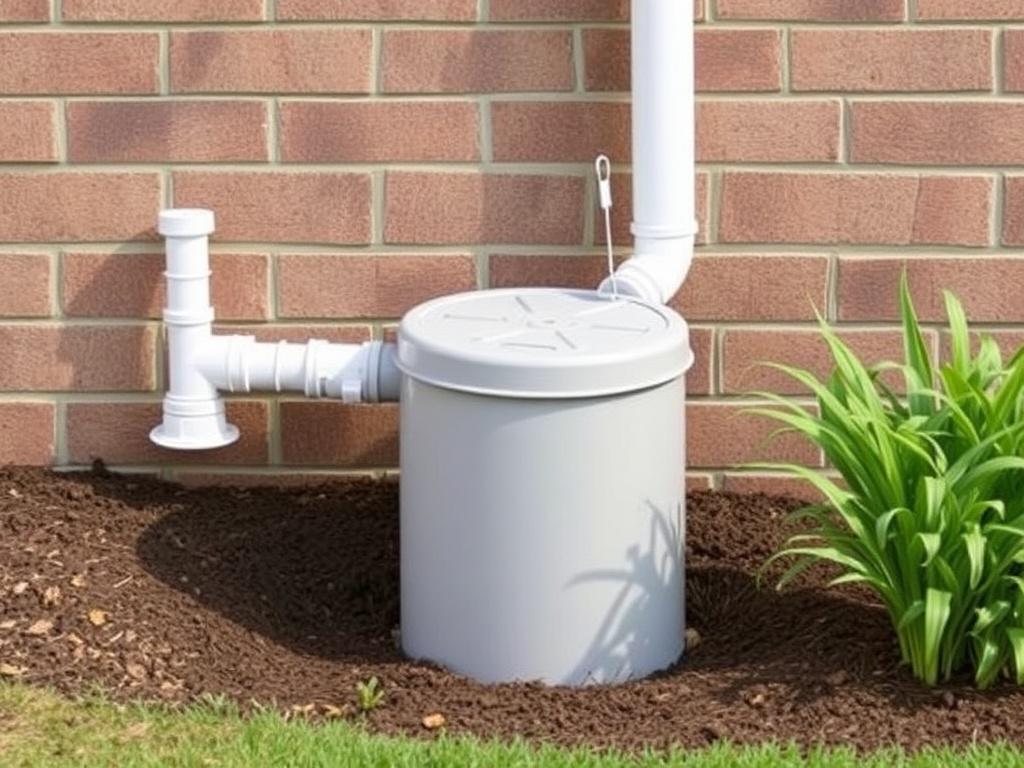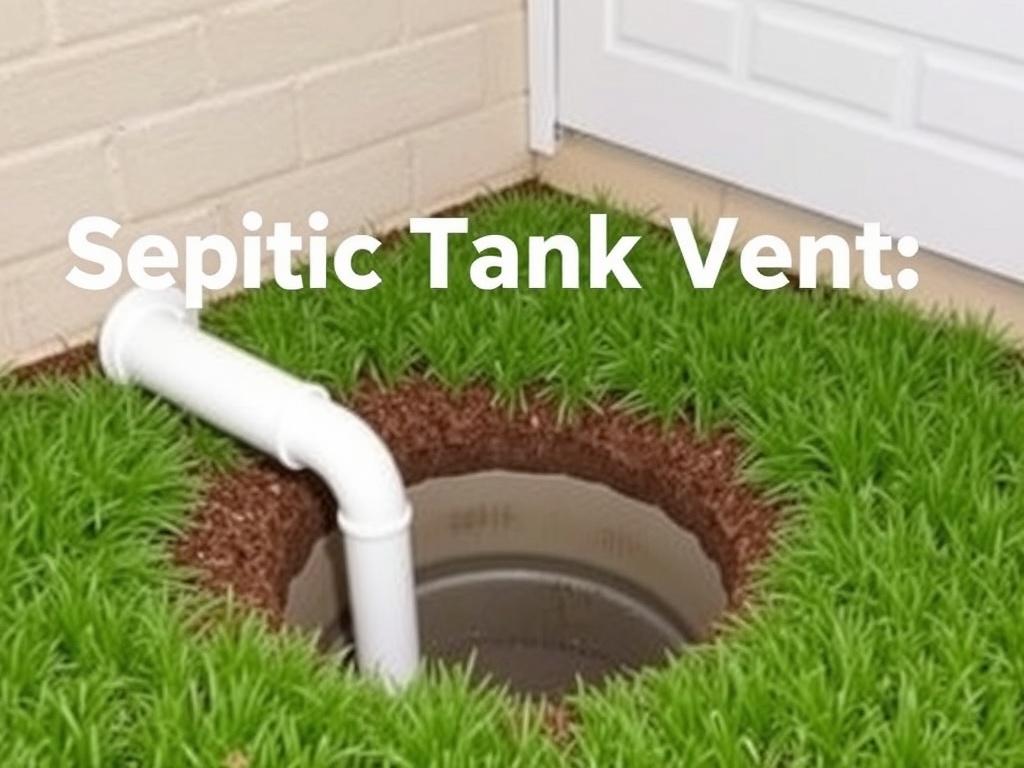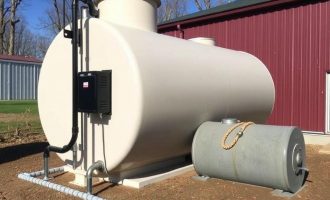When you think about your home’s plumbing and septic system, you might imagine pipes, tanks, and pumps quietly working away beneath the surface. However, one critical component often goes unnoticed—the septic tank vent. This small but essential part of your septic system plays a fundamental role in keeping everything running smoothly and your home smelling fresh. In this article, we’ll explore why the septic tank vent is so important, how it works, common problems that arise when vents are clogged or missing, and how maintaining this component can save you money and protect your property.
- What Is a Septic Tank Vent?
- How Does the Septic Tank Vent Work?
- Why Is a Septic Tank Vent Important?
- 1. Prevents Dangerous Pressure Build-Up
- 2. Eliminates Unpleasant Odors
- 3. Supports Proper Bacterial Activity
- 4. Protects Your Plumbing System and Septic Tank
- Signs Your Septic Tank Vent Needs Attention
- Common Warning Signs Include:
- Common Causes of Septic Tank Vent Problems
- How to Maintain Your Septic Tank Vent
- Simple Tips for Septic Tank Vent Maintenance:
- Legal and Safety Regulations for Septic Tank Vents
- Septic Tank Vent vs. Plumbing Vent: What’s the Difference?
- DIY or Professional Help: Who Should Handle Septic Vent Issues?
- Cost Considerations: Septic Tank Vent Repair and Maintenance
- Environmental Impact of a Failing Septic Tank Vent
- Summary of Septic Tank Vent Benefits
- Final Thoughts on Septic Tank Vent Importance
- Conclusion
What Is a Septic Tank Vent?
Before diving into why a septic tank vent is crucial, it helps to understand exactly what it is. A septic tank vent is a pipe that extends from your septic system to the outside air, usually routed through the roof of your home. The main function of this vent is to release gases that naturally build up inside the septic tank. These gases form during the decomposition of waste materials and can include methane, carbon dioxide, and hydrogen sulfide—all of which can be dangerous if not properly ventilated.
Unlike the sewer pipes in a city, where gas is expelled through a vast system maintained by professionals, your septic system is a self-contained environment. The vent allows for the safe escape of these gases, prevents pressure build-up, and ensures that oxygen can enter the system to help with the biological process inside the tank.
How Does the Septic Tank Vent Work?
The operation of a septic tank vent might seem simple, but it plays a role in a delicate balance of systems designed to maintain a healthy septic environment. Here’s a step-by-step explanation of how it works:
- Waste enters the septic tank: All water and waste from your home’s drains flow into the septic tank.
- Separation of solids and liquids: Inside the tank, solids settle to the bottom, forming sludge, while lighter materials float to the top as scum.
- Decomposition: Bacteria break down the waste, producing gases like methane.
- Gas release through the vent: Without a vent, these gases would build up, potentially creating pressure and hazardous conditions. The septic tank vent provides an outlet to release these gases safely into the atmosphere.
- Airflow regulation: The vent also allows fresh air to enter the tank, supporting aerobic bacterial activity that helps break down waste more effectively.
Why Is a Septic Tank Vent Important?
Many homeowners take septic vents for granted until something goes wrong. The importance of the septic tank vent can’t be overstated for several reasons, from health and safety to maintaining the efficiency of your system.
1. Prevents Dangerous Pressure Build-Up
Inside your septic tank, waste decomposition produces gases that can accumulate rapidly. If these gases don’t have a proper vent, pressure increases within the tank and the plumbing system. This pressure can cause leaks, pipe damage, or even bursts, leading to costly repairs and potential contamination of your property. A properly functioning septic tank vent reduces the risk by releasing this pressure safely outdoors.
2. Eliminates Unpleasant Odors
Have you ever noticed bad smells around a sewage pipe or near your septic system? These odors often result from the buildup of gases like hydrogen sulfide, which smells like rotten eggs. The septic tank vent helps channel these gases far from your living spaces. Without it, toxic and foul-smelling gases can seep into your home through drains, causing discomfort and health concerns for your family.
3. Supports Proper Bacterial Activity
Septic systems rely on bacteria to break down waste effectively. These bacteria need oxygen to thrive, and the vent allows air to flow into the system, supplying oxygen where it’s needed. Good bacterial activity means the septic tank can digest waste better, reducing sludge buildup and minimizing the frequency of pump-outs.
4. Protects Your Plumbing System and Septic Tank
A blocked or missing vent can cause negative pressure inside your plumbing system. This can lead to slow draining sinks, gurgling noises, and drain backups—signs that the air is trying to enter your pipes elsewhere. Over time, this pressure can damage your pipes and fixtures. The vent ensures equalized airflow, preventing these issues.
Signs Your Septic Tank Vent Needs Attention
Not everyone knows how to spot problems with their septic tank vent until a serious issue arises. However, being aware of warning signs can help you address problems early and avoid expensive repairs.
Common Warning Signs Include:
- Foul odors around your home or septic system: If you notice bad smells especially near the roof or around vent pipes, it could mean the vent is clogged or damaged.
- Slow drains or gurgling sounds in sinks and toilets: These can indicate poor airflow in your plumbing caused by a blocked vent.
- Backups in toilets or drains: A blocked vent can cause pressure imbalances that lead to sewage backing up in your home.
- Presence of rust or corrosion on vent pipes: Corroded vents might be deteriorating and losing functionality.
If you notice any of these signs, it’s essential to have a professional inspect your septic tank vent and overall system for any issues.
Common Causes of Septic Tank Vent Problems
Understanding what causes vent problems can help prevent them.
| Cause | Description | Impact |
|---|---|---|
| Blockages | Debris, leaves, or nests can block the vent pipe, preventing gas escape. | Leaks, odors, pressure build-up, plumbing issues. |
| Improper Installation | Vent pipes installed too low or incorrectly can trap gases. | Reduced airflow, vent failure, health hazards. |
| Corrosion or Damage | Over time, vents made of metal can corrode or crack. | Leaks, gas escape near the home, structural problems. |
| Freezing Conditions | In cold climates, vents can freeze and block gas flow. | Pressure build-up, system damage, backups. |
How to Maintain Your Septic Tank Vent

Regular maintenance of your septic system should include checking the septic tank vent. Luckily, maintaining your vent is not complicated and can prevent many headaches.
Simple Tips for Septic Tank Vent Maintenance:
- Inspect the vent pipe regularly: Look for signs of rust, cracks, or any blockages around the vent opening.
- Clear obstructions: Remove leaves, dirt, bird nests, or other debris that might be blocking the vent.
- Check for odors: Pay attention to any unusual smells near the vent pipe or inside the home.
- Hire regular septic inspections: Professionals can perform a thorough checkup, including vent functionality, every few years.
- Protect vent pipes from freezing: In colder climates, make sure the vent is insulated or positioned to minimize frost buildup.
Legal and Safety Regulations for Septic Tank Vents
Because of the gases involved, septic tank vents must meet certain safety regulations and code requirements. Most local building codes require that septic tank vents extend above the roofline to ensure gases are dispersed safely away from windows and living spaces. Additionally, vents should be installed away from air intakes and HVAC systems to prevent gases from entering your home.
When installing or repairing any part of your septic system, including the vent, it’s vital to work with a licensed plumber or septic professional who ensures compliance with local codes and environmental regulations. Doing so protects your health, your property, and the environment.
Septic Tank Vent vs. Plumbing Vent: What’s the Difference?
You might hear people use “septic tank vent” and “plumbing vent” interchangeably, but they serve related yet distinct functions.
- Septic Tank Vent: This specifically refers to the vent pipe that releases gases formed inside your septic tank.
- Plumbing Vent: Also known as a vent stack, this vent prevents negative pressure in your home’s drainage system, allowing wastewater to flow freely. It also connects to or runs alongside the septic tank vent.
Both vents are critical, but the septic tank vent focuses on safely releasing septic gases while the plumbing vent ensures proper drain function throughout your home.
DIY or Professional Help: Who Should Handle Septic Vent Issues?

Some inspection and simple clearing of your septic tank vent can be done by homeowners comfortable with minor maintenance. For example, removing visible debris or checking the vent cap might be safe to do yourself. However, issues like blocked internal pipes, vent pipe replacement, or diagnosing system pressure problems require professional expertise.
Attempting complex repairs without the right tools or knowledge can worsen the problem or expose you to harmful gases. A licensed plumber or septic service will have the right equipment and training to handle septic tank vent problems safely and effectively.
Cost Considerations: Septic Tank Vent Repair and Maintenance
Many homeowners worry about the cost of maintaining their septic system, but neglecting the septic tank vent can lead to much higher expenses down the road.
Here’s a breakdown of typical costs:
| Service | Typical Cost Range | Notes |
|---|---|---|
| Basic Vent Inspection | $50 – $150 | Homeowner sometimes able to self-assess minor obstructions. |
| Professional Vent Cleaning | $150 – $300 | Removes blockages inside pipes or caps. |
| Vent Pipe Replacement | $300 – $700 | Includes materials and labor for new vent pipe installation. |
| Full Septic System Inspection | $200 – $500 | Assesses entire system, including vent functionality. |
Investing in regular maintenance and paying attention to your septic tank vent can prevent costly repairs like sewage backups, structural damage, or the need for a full system replacement.
Environmental Impact of a Failing Septic Tank Vent
A malfunctioning septic tank vent doesn’t just affect your home—it can also harm the environment. When gases like methane escape improperly, they contribute to greenhouse gas emissions. Additionally, pressure buildup caused by poor venting can force untreated sewage to leak into your soil, contaminating groundwater and nearby water bodies.
Ensuring your septic tank vent works well helps your septic system function properly and reduces the risk of environmental contamination. It’s an important part of responsible homeownership and environmental stewardship.
Summary of Septic Tank Vent Benefits
| Benefit | Explanation |
|---|---|
| Gas Release | Prevents buildup and potential explosion of harmful gases. |
| Odor Control | Keeps unpleasant and hazardous smells outside the home. |
| Airflow Management | Allows oxygen to aid bacteria in breaking down waste efficiently. |
| Prevents Plumbing Issues | Maintains neutral pressure to avoid slow drains and backups. |
| Protects Environment | Reduces risk of soil and water contamination caused by sewage leaks. |
Final Thoughts on Septic Tank Vent Importance
Every part of your septic system is important, but the septic tank vent deserves special attention. Taking the time to understand how this component works and why it’s vital helps you maintain a safe, odor-free, and efficient septic system. Regular inspections, prompt repairs, and proper installation of your septic tank vent protect your home, your family’s health, and the environment. So next time you look up at your roof, remember—the little pipe sticking out there is doing a big job you don’t want to overlook.
Conclusion
In summary, the septic tank vent is a crucial but often overlooked element of your home’s waste management system. It safely expels harmful gases, supports efficient waste decomposition, prevents plumbing problems, and helps control odors, making your living environment healthier and safer. Proper installation, regular inspection, and timely maintenance of your septic tank vent protect your property and the environment from costly damage and contamination. Whether you’re a homeowner or a tenant, knowing about septic tank vents puts you a step ahead in ensuring your septic system works seamlessly for years to come. Taking care of this small pipe is a smart investment well worth the effort.
Помогла вам статья?






